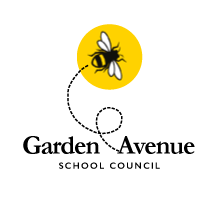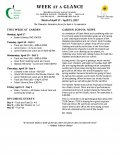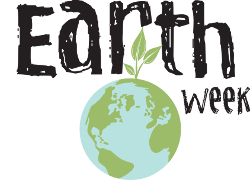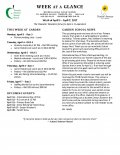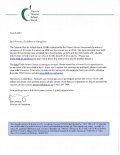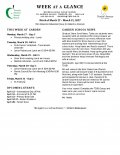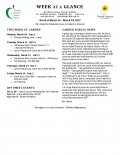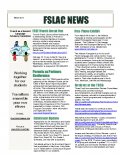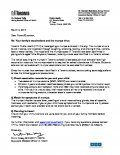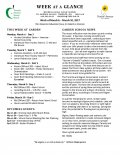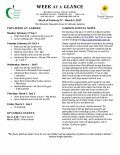The French as a Second Language Advisory Committee (FSLAC) newsletter for March 2017 was sent out to us by Robin Pilkey, who is the trustree representative on this advisory committee as well as being the TDSB Chair. Parents can sign up to receive this newsletter directly (see instructions at end)
In this issue:
- Toronto Public Library - Free March Break Fun in French
- Children in Paris 1950- free exhibit
- Parents as Partners Conference
- Reviews at the TDSB
- Enrolment Update
- Gifted and French Immersion
- Planning Ahead – Summer French
- Meet our New FSL Principal
- You are Invited!
Link for tweeting, posting electronically or printing the newsletter:http://www.tdsb.on.ca/Portals/0/docs/FSLAC%20Newsletter%20-%20March%202017.pdf
1. FREE March Break Fun in French
Toronto Public Library will be hosting lots of entertaining events in French for children including Reptilia en français, solving a mystery using science, interactive theatre and musical performances at branches across the city. Some performances require registration. Details here.
Kids age 10-14 are invited to ‘Seul à la maison!’, a workshop on staying at home alone at the Woodside Square branch on Wednesday, March 15 at 6 pm. Registration is required at 416-396-8979.
2. Children in Paris 1950 – Free Exhibit at the Alliance Française
From March 8th to April 1st, the Alliance Française is hosting a photography exhibit called Photographic Memories Of Lost Spaces : The Children Of Cité Lesage-Bullourde And Boulogne-Billancourt, Paris 1950. Admission is free. Details here.
The Alliance Française is a not-for-profit French language and culture centre. It was established in Toronto in 1902 by University of Toronto professors. Among its first language students were Canadian military officers who were shipping off to France during World War I. Their downtown centre, at Spadina and Bloor, offers French programming for children, language classes and workshops for adults, an art gallery, a theatre and a bookstore with a great children’s section. Language courses are aligned with the Common European Framework of Reference (CEFR), the internationally recognized language proficiency benchmarks and they are an official testing centre for the Diplôme d'Études en Langue Française (DELF) Their other locations are in North York, Markham, Oakville and Mississauga.
3. Parents as Partners Conference
Saturday, April 1st, TDSB parents will be gathering at the Allstream Centre (at the CNE) to learn about improving student achievement and well-being at school and at home. The conference is free but registration is required. Keynote speakers are Director John Malloy who will speak about the Learning Centres and Itah Sadu, writer, entrepreneur and community builder. There will be more than 80 workshops to choose from, including session C19 on Supporting All Learners in FSL Programs presented by Kirsten Johnston, FSL Program Coordinator. More information and registration here.
4. Enrolment Update
Applications for SK Immersion and Grade 4 Extended French are up this year. As a result, these schools will have new SK Immersion programs in September: Ellesmere-Statton (Scarborough, Ward 19), Ernest (North York, Ward 17), O’Connor (North York, Ward 17), Secord (East York, Ward 16). For Grade 4 Extended, one new site is expected.
Full details will be in the Enrolment Report that is published in May/June. A big thank you TDSB staff for continuing to expand opportunities for our students.
5. Reviews at the TDSB
Three Pupil Accommodation Review Committees (PARCs) are currently looking at recommendations on potential changes such as school closures, relocation of special education classes, French programs and configuration of grades. Info here.
Detailed planning information for 2016-25 is here.
Alternative School Review – public consultation meetings March 23 and 28, 2017. Info here. Currently, there is one alternative school with a focus on French, Hawthorne II Bilingual Alternative Junior School.
Access and Secondary School Review – as part of the Equity Strategy, Framework and Action Plan. For the 2016-17 school year, consultation is on-going with students in grades 7-12. In 2017-18, parents and community members will have the opportunity to provide feedback and input.
6. Gifted and French Immersion
Parents ask…
How does the new screening process for gifted for all students work with French immersion?
Starting this school year, every grade 3 student (with prior parent permission) wrote the Canadian Cognitive Abilities Test (CCAT) in class. This is a paper and pencil test that is done in English and each of the three parts takes 30 minutes. The purpose of the screening is to improve equity of access to differentiated programming including gifted. It gives the classroom teacher and parents information on the strengths and learning needs of the student. Results are confidential and do not affect the student’s report cards.
The screening identifies students who will be assessed further by their classroom teacher and the School Support Team which includes the principal and the special education teacher. If a student meets the criteria on the Gifted Rating Scale and obtains a 98th percentile in General Abilities Index of the Wechsler Intelligence Scale for Children, the Identification Placement and Review Process starts. An offer may be made to place the student in a gifted class starting in grade 4. (IPRC information)
For parents of a French immersion child identified as gifted, there is choice between staying in French immersion or joining a gifted class in the English program. The TDSB does not have classes that are both French immersion and gifted. Students identified as gifted who stay in immersion have an Individual Education Plan (IEP) which outlines how the student’s strengths and needs will be accommodated by the teachers. If the French immersion student goes into a gifted class in grade 4, the language of instruction is English with Core French for 40 minutes a day where most of the class will be learning French for the first time. It is important to note that accommodations are made within the expectation of the student’s grade or from grades below. If a student is identified as gifted, the IEP allows for broader and deeper work at the current grade level, never for work from a higher grade.
-Angela Caccamo, Central Co-ordinating Principal, Teaching & Learning
7. Planning Ahead – Summer French
The TDSB offers French programs for elementary students and French credits for secondary students over the summer at several locations. Information is posted here as it becomes available.
EduTravel offers travel and secondary French credits including Civics/Careers, Grade 10 History and core, extended and immersion French credits. Info here.
FRENCHSTREET.CA is the go to site for finding French summer camps, exchanges and all kinds of opportunities for kids to use their French outside of the classroom. Search for opportunities by region and by age group and then, link right up to the organization providing the opportunity. This site is a project of the Ministry of Education andCanadian Parents for French.
The YMCA Summer Work Student Exchange gives 16 & 17 year olds the opportunity to live and do paid work in a French community during the summer.
Applications due March 15th. Details here.
8. Meet our new FSL Principal – Angela Caccamo
Born and raised in Toronto, I began learning French in the regular Core French Program. Languages were soon understood to be a passion of mine. My love for the French language led me to several French summer camps, various trips to French speaking countries, and to the volunteer teaching of French classes on weekends through Continuing Education. My French studies continued well throughout my high school and university years. I completed a Bachelor of Arts Degree in International Languages & Individual and Society at the University of Toronto, and then, a Bachelor of Education specializing in International Languages & Literature. Subsequently, I earned a Specialist qualification in French as a Second Language and English as a Second Language.
Passionate about languages and the instruction of children, teaching was a natural fit for me. As a young first year teacher, many moons ago, I remember the excitement I felt to be able to share my love of the French language and culture with grade 7 students; what could be better! And so began a life-long career of teaching Core, Extended and Immersion French at TDSB schools. Ultimately, I brought my passion for teaching and making a positive difference for children to educational leadership roles. I have been a Vice-Principal and Principal in several schools including triple track schools and a French Immersion Centre.
I now proudly serve as the Central Coordinating Principal in Teaching & Learning. I hope to continue to make a positive impact on student success, achievement, and wellness as we all work together to meet the needs of all learners.
-Angela Caccamo, Central Co-ordinating Principal, Teaching & Learning
9. You are Invited!
Parents, students, trustees, teachers and staff are invited to attend and participate in FSLAC meetings. The Board’s mission for the FSLAC is: “to consult with and advise the Board on French as a Second Language matters. As a Board community advisory committee, the FSLAC will contribute to the work of trustees and staff. This partnership of trustees, staff and parents will foster excellence and growth in FSL programs at the Board.” Meetings start at 7 pm at the TDSB offices at 5050 Yonge St., ground floor. FSLAC information is posted on the TDSB website:tdsb.on.ca/fslac .
Upcoming meetings are: April 4, May 9, June 13, 2017.
Note: This email list is being maintained by FSLAC parent volunteers and will be used for this newsletter and occasional FSL news for interested community members. To get on or off the distribution list or to get in touch, please email fslactoronto@gmail.com . Please provide your first and last name and the name of your child’s school, if applicable.
Parent Councils: This email has been sent to TDSB school email addresses and trustees with the request to forward it to parents. Please share this newsletter with your school through your own distribution network. If your parent council has its own permanent email address, please let us know at fslactoronto@gmail.com .
Have a great March break,
Kristina Laperle
FSLAC Parent Co-chair
